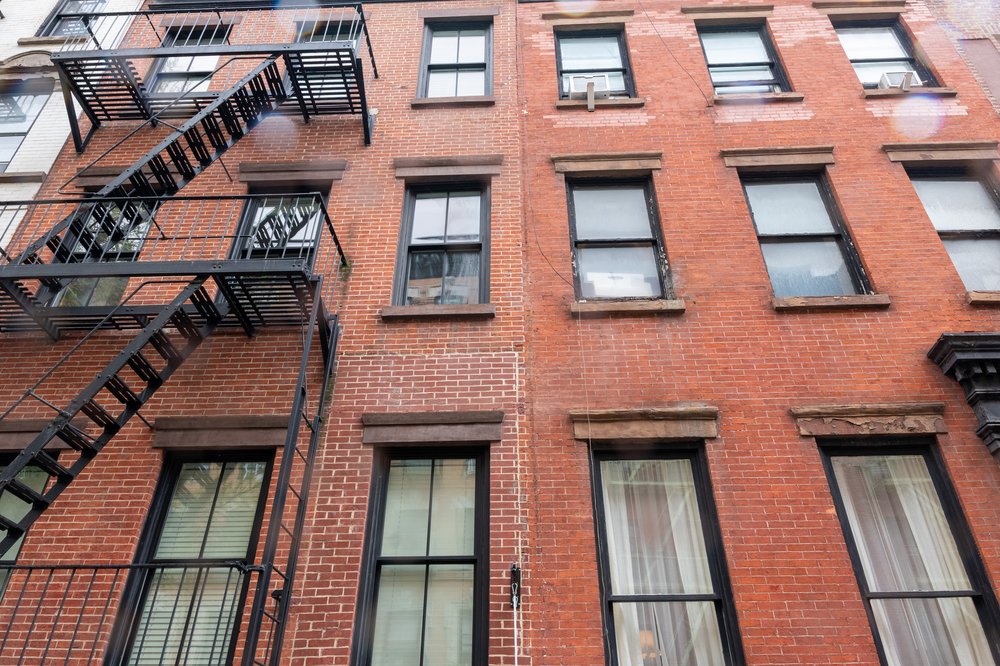Data proves what we already know: NYC rents are rising faster than wages
Nov. 20, 2024, 10:01 a.m.
A new report from the Fiscal Policy Institute hones in on costs from 2019-2023.

The findings of a new report on housing costs and wages validate the frustration many New Yorkers feel on the first of the month: People's rents are rising faster than their incomes.
The report released by the Fiscal Policy Institute on Wednesday found that median rents in New York City increased by around 18% between 2019 and 2023, while incomes grew by just 11.5% over that span.
People who own their homes were also affected by rising prices, the report showed, with the cost of expenses like homeowners insurance and utilities outpacing wage growth, according to the analysis of U.S. Census Bureau’s American Community Survey statistics.
"It highlights how much the strain in housing costs have hit New Yorkers in recent years and how they have become the dominant driver for households and families leaving New York City,” said the report's author Emily Eisner, an economist with the Fiscal Policy Institute.
Median rents increased from $1,483 a month in 2019 to $1,748 last year, while costs for owners rose from $1,812 to $2,023 a month over that period, according to the Census Bureau statistics.
The report was released a day before a City Council committee is set to vote on Mayor Eric Adams’ plan to change zoning restrictions to allow for more housing development across the city. The Department of City Planning estimates the changes could fuel the creation of around 100,000 new apartments.
The City Council’s zoning subcommittee will vote on the plan on Thursday before a full vote next month.
“There’s no way of tackling these affordability concerns without adding new housing,” Eisner said.
Eisner added, however, that building apartments is not enough to guarantee low- and middle-income renters can actually afford them.
She encouraged the city to adopt affordability solutions contained in a complementary plan from Council Speaker Adrienne Adams, who has called on the city to increase affordable housing development and preservation in conjunction with the zoning changes. Speaker Adams has encouraged the mayor to subsidize more homes for the lowest-income New Yorkers, expand access to rental assistance programs and require developers to cap rents for low- and middle-income tenants in more newly built housing.
Eisner said the report shows the city needs the zoning changes as well as the City Council’s proposed policies to ensure a portion of new homes are priced for New Yorkers who bear the brunt of the city’s affordability crisis.
Mayor Adams’ plan, dubbed “City of Yes,” would update citywide zoning regulations to allow for new development in each neighborhood. The plan would specifically permit the owners of one- or two- family lots to add an extra unit on their properties , allow developers to build up-to-four-story apartment buildings along commercial streets and greenlight apartment buildings up to five stories tall near subway and train stations.
First Deputy Mayor Maria Torres-Springer told reporters on Monday that she agreed with the City Council’s affordable housing policy goals in conjunction with the zoning reforms.
“They're all part of the puzzle,” Torres-Springer said. “We have to share the same north star, which we do: As much housing as possible for New Yorkers who are experiencing so much insecurity and demand action.”
The mayor’s rezoning plan still has many opponents, including several councilmembers and local leaders who have criticized changes they say will bring unwanted development to suburban-style neighborhoods and reduce the power of individual councilmembers and community boards.
Veteran government strategist Corey Bearak, who chairs a land use committee about the rezoning plan for eastern Queens’ Community Board 13, said the rezoning plan "creates an opportunity for a lot more housing of greater density than makes sense in a bunch of different communities,” and warned that it would not be built with affordability in mind.
Some tenant groups have also spoken out against the plan, noting that zoning changes don’t automatically lead to lower rent and home prices.
Council speaker says Mayor Adams’ ‘City of Yes’ plan not enough to address NYC’s housing needs Will the Council say ‘no’ to Mayor Adams’ City of Yes? We get a preview next week.